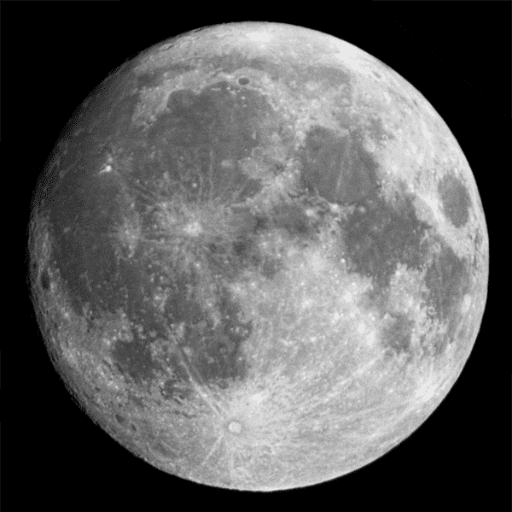| Lunar
Libration
or "Why Every Full Moon is Unique"
In
school we learned that one
side of the Moon always faces Earth, and we can never see the
other side. That's true, but only approximately. Consider the
following: Photographer Laurent
Laveder spent the last two years taking pictures of every
full Moon over his home in France, and he assembled the images
into a time-lapse movie.

The Moon rocks
and rolls, shrinks and swells, never presenting precisely the
same face twice. "This is 2 years condensed in only 2 seconds!"
says Laveder. "Sorry for the mal de mer."
Because the
Moon's
orbit is slightly elliptical (5%) and slightly tilted (5°),
we view each month's full Moon from a slightly different distance
and angle. This makes each full Moon unique. The rocking motions
are called libration;
because of libration we can observe not just 50% but rather 59%
of the Moon's surface.
back
to Spaceweather.com
|